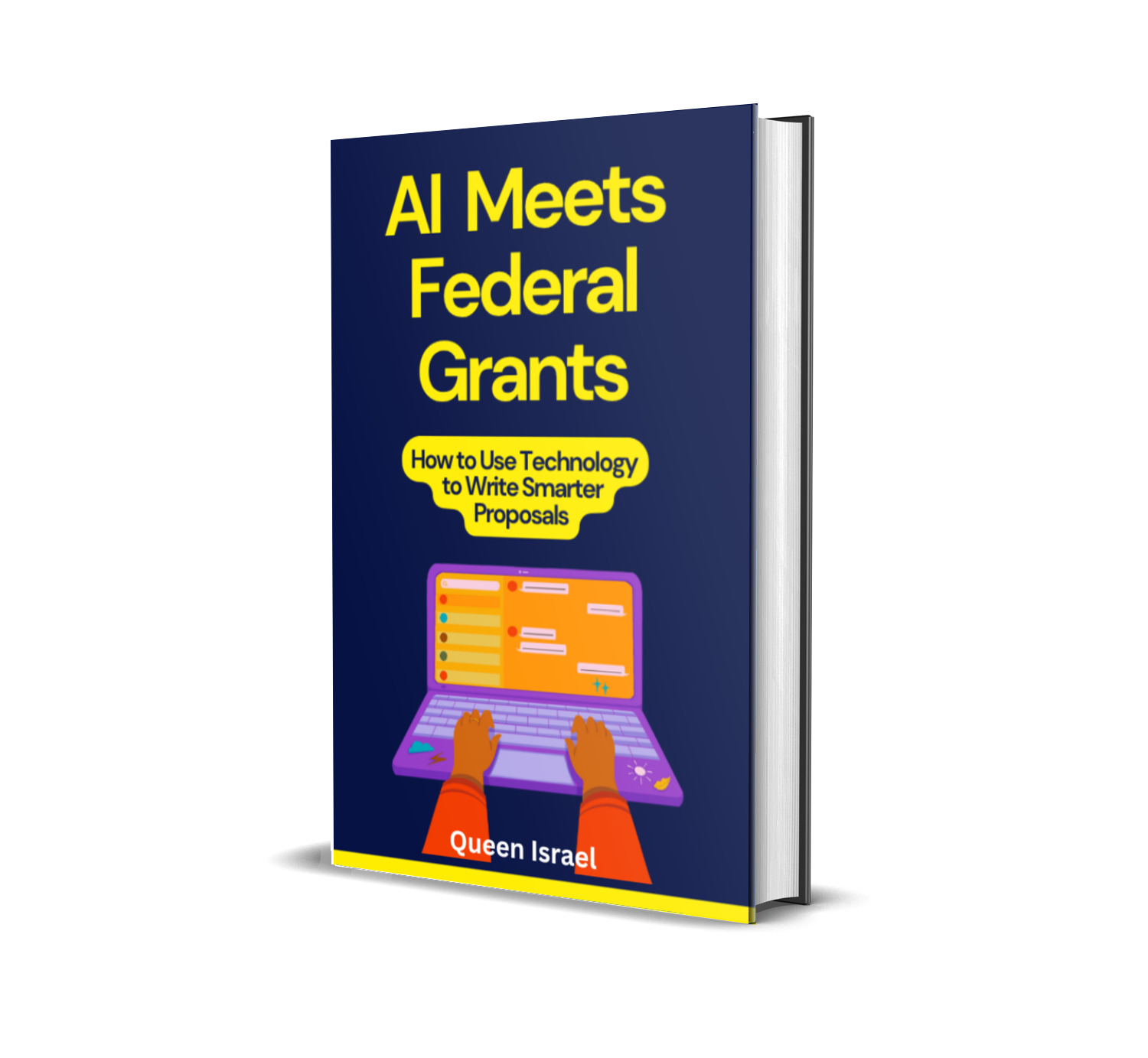Autism Grants for Schools refer to financial aids provided to educational institutions to support the development and implementation of programs, services, and resources specifically designed to meet the unique needs of students with Autism Spectrum Disorder (ASD).
Autism grants serve as vital financial resources, allowing schools to secure essential support and provisions for students with Autism Spectrum Disorder (ASD). These grants play an indispensable role in fostering an enriching and inclusive educational environment for students with autism, addressing their unique learning needs and promoting their academic and social development.
Autism, characterized by a range of conditions affecting social interaction, communication, interests, and behavior, necessitates specialized educational strategies and support systems. Schools, striving to cater to diverse learning needs, often encounter financial constraints in implementing comprehensive autism-centric programs and interventions. It is here that autism grants become pivotal, bridging the gap between the requisite resources and available funds, thereby enabling schools to offer optimal support to students with ASD.
The types of autism grants available are multifarious, encompassing federal, state, private, and nonprofit grants, each with distinct application processes, eligibility criteria, and objectives. Federal grants are often extensive, aimed at reinforcing educational institutions’ capabilities to serve students with special needs. They are usually allocated through specific government agencies and necessitate strict adherence to guidelines and reporting. State grants, on the other hand, are typically designed to support localized initiatives, allowing schools to address the specific needs of their communities effectively.
Private and nonprofit grants are usually more varied, with organizations and foundations focusing on a wide range of goals, from enhancing autism awareness and understanding to supporting innovative interventions and research in autism education. These grants can provide schools with the flexibility to implement tailored programs and services, ensuring the diverse needs of students with autism are met with efficacy and compassion.
Schools harnessing these grants can invest in state-of-the-art learning tools, specialized training for educators, and the development of inclusive curricula, facilitating a holistic learning experience for students with ASD. By receiving grant support, schools are empowered to cultivate an environment that is conducive to the holistic development of students with ASD, addressing their academic needs while also fostering social integration and emotional well-being.
Investing in staff development is another crucial aspect that these grants support. Educators, armed with the knowledge and skills acquired through specialized training, are better equipped to understand and address the nuanced needs of students with autism. This heightened understanding enables the development of innovative teaching strategies, ultimately contributing to enriched learning experiences and improved educational outcomes for students with ASD.
Moreover, some grants specifically focus on fostering innovation and research in autism education, promoting the exploration of new methodologies and interventions that can significantly enhance the learning experiences of students with autism. Schools can leverage such grants to participate in groundbreaking research, contributing to the broader discourse on autism education and sharing insights that can potentially revolutionize approaches to teaching students with ASD.
Importance of Autism Grants for Schools
Autism grants hold significant importance for schools striving to provide comprehensive support to students with Autism Spectrum Disorder (ASD). These grants stand as a beacon of hope and a source of sustenance, helping schools navigate the financial challenges often encountered in establishing an all-encompassing, autism-friendly learning ecosystem.
- Ensuring Adequate Resources:
Schools endowed with autism grants are enabled to procure essential resources and tools integral for cultivating a nurturing and conducive learning environment for students with ASD. These grants allow schools to seamlessly integrate specialized equipment, learning materials, and assistive technologies that cater to the unique learning needs and preferences of students with autism, ensuring they are afforded a suitable and enriched education.
The acquisition of these resources is paramount in promoting the academic and social development of students with ASD, allowing them to engage in the learning process more effectively and holistically. These resources not only contribute to the enhanced learning experiences but also serve to bolster the confidence and independence of students with ASD.
- Staff Training and Development:
The role of autism grants extends beyond the provision of learning resources; they are instrumental in fostering professional development and training for school staff. Educators are the linchpin of the learning environment, and equipping them with specialized knowledge and skills is crucial for the optimal support of students with autism.
Autism grants facilitate the delivery of intensive training sessions, workshops, and continuous learning opportunities for educators and support staff. This heightened proficiency enables educators to comprehend and address the multifaceted needs of students with autism more effectively, fostering a deeper connection and understanding between students and educators.
This enriched understanding is pivotal as it translates into the development of tailored teaching strategies, individualized learning plans, and personalized interventions, ensuring the educational content is accessible, engaging, and beneficial for students with ASD.
The enhancement in staff competence also contributes to the early identification of developmental concerns, enabling timely interventions and support, which are crucial in mitigating challenges and maximizing the developmental potential of students with ASD.
- Creating Inclusive Environments:
Autism grants are fundamental in propelling the establishment of inclusive and supportive learning environments, serving as the cornerstone for fostering diversity and acceptance within educational settings. Inclusion is not merely a conceptual ideal but a tangible reality made possible through deliberate efforts, financial investment, and unwavering commitment, all facilitated by autism grants.
The funds procured through these grants enable schools to undertake structural modifications, implement inclusive policies, and promote awareness campaigns that nurture a sense of belonging and acceptance among all students.
Inclusive environments serve as a catalyst for promoting social integration, peer interaction, and mutual respect, thereby enriching the social fabric of the school community. The ambiance of acceptance and support resonates beyond the confines of the classroom, permeating the entire school ecosystem and cultivating a culture of empathy, respect, and mutual understanding. This cultural transformation is instrumental in mitigating stigmatization, isolation, and bullying, fostering a harmonious coexistence among students with diverse needs and abilities.
Additionally, the cultivation of inclusive environments necessitates ongoing reflection, assessment, and enhancement of inclusive practices. Autism grants afford schools the financial latitude to engage in continuous improvement of inclusion strategies, allowing for the incorporation of innovative approaches, feedback, and evolving needs of students with autism. This dynamic approach to inclusion ensures the sustainability and effectiveness of inclusive environments, fostering a lasting impact on the well-being and development of students with ASD.
Types of Autism Grants Available:
The availability of diverse autism grants facilitates comprehensive support for schools seeking to enhance the educational experience of students with Autism Spectrum Disorder (ASD). These grants, categorized as Federal and State Grants, Private and Nonprofit Grants, and Innovation and Research Grants, each play a pivotal role in fostering advanced, inclusive, and specialized education for students with ASD.
a) Federal and State Grants:
- Individuals with Disabilities Education Act (IDEA):
- Description: This federal grant is fundamental for schools, allowing them to offer specialized educational services to students with disabilities, including ASD. It focuses on ensuring that children with disabilities have access to a free appropriate public education that emphasizes special education and related services designed to meet their unique needs.
- Eligibility and Application: Schools and educational agencies can apply directly through the designated state agencies, adhering to outlined guidelines and fulfilling specific requirements pertaining to service provisions and reporting.
- ESEA Title I Grants:
- Description: Part of the Elementary and Secondary Education Act, these grants aim to improve the academic achievements of the disadvantaged, aiding schools in enhancing their educational interventions for students with ASD.
- Eligibility and Application: Schools with a high percentage of children from low-income families are eligible. Applications can be submitted through state educational agencies.
b) Private and Nonprofit Grants:
- Autism Speaks Local Impact Grants:
- Description: These grants are designed to promote local services and support for people with autism and their families. They are targeted to address the unique challenges and needs associated with ASD.
- Eligibility and Application: Schools, as well as service providers and autism organizations, can apply through the Autism Speaks website, providing detailed proposals outlining intended projects and their impact.
- Organization for Autism Research (OAR) Grants:
- Description: OAR offers grants focusing on research and practical solutions to help people with ASD and their families.
- Eligibility and Application: Researchers, educators, and organizations can apply by submitting detailed research proposals through the OAR website.
- Doug Flutie, Jr. Foundation for Autism
- Description: The Doug Flutie, Jr. Foundation for Autism awards grants to organizations and schools that provide services, support, and advocacy for individuals with autism. The grants are aimed at improving access to services, increasing the quality of life, and promoting inclusion for individuals with autism.
- Eligibility and Application: Schools, organizations, and other service providers working with individuals with autism can apply. Applicants must provide detailed information on their program’s impact, sustainability, and the number of individuals benefiting. Applications are typically submitted online through the foundation’s website.
4. American Autism Association
- Description: The American Autism Association offers support and assistance to organizations and schools to aid families and individuals affected by autism. They provide financial assistance and other resources to ensure that individuals with autism receive the necessary education, services, and support to achieve an improved quality of life.
- Eligibility and Application: Schools, families, and organizations providing support and services to individuals with autism can apply. Application details and eligibility criteria can usually be found on the association’s official website.
5. Autism Support Network Grants
- Description: This organization provides grants to support projects and programs that directly impact individuals with autism. These grants aim to address the varied needs of individuals with autism and promote innovation in providing support and services.
- Eligibility and Application: Schools, nonprofits, and other organizations can apply, detailing their project or program’s scope, objectives, and potential impact.
6. Autism Society of America Grants
- Description: The Autism Society provides grants that focus on improving the lives of all affected by autism. They support programs and projects that promote autism awareness, advocacy, and the enhancement of the lives of individuals with autism.
- Eligibility and Application: Information on eligibility and the application process can be accessed on the Autism Society of America’s website.
7. Daniels Music Foundation Grants
- Description: This foundation offers grants supporting music-based programs and interventions for individuals with autism. These grants seek to leverage music’s therapeutic properties to enhance cognitive, social, and emotional development.
- Eligibility and Application: Organizations and schools implementing music-based programs for individuals with autism can apply, outlining their program’s goals, methodologies, and expected outcomes.
8. NEXT for Autism Grants
- Description: NEXT for Autism awards grants to schools and organizations that are creating innovative programs and interventions for individuals with autism. The focus is on transforming the national landscape of services and opportunities for people with autism.
- Eligibility and Application: Schools and organizations can refer to the official website of NEXT for Autism for application details and eligibility criteria.
9. HollyRod Foundation’s RJ’s Place Grants
- Description: The HollyRod Foundation offers support to programs and initiatives aimed at helping individuals with autism and their families, focusing on underserved communities. They seek to provide compassionate care to those living with autism.
- Eligibility and Application: Information on eligibility and application can be found on the HollyRod Foundation’s official website.
10. ACT Today! Grants
- Description: ACT Today! provides grants that aim to improve access to effective therapy for individuals with autism whose families cannot afford the necessary tools their children need to reach their highest potential.
- Eligibility and Application: Schools and organizations providing services to individuals with autism can apply through the ACT Today! website.
Innovation and Research Grants:
- National Institutes of Health (NIH) Autism Research Grants:
- Description: NIH offers numerous grants dedicated to advancing research in autism, focusing on understanding the disorder and developing innovative interventions and treatments.
- Eligibility and Application: Researchers and institutions can apply by submitting detailed research proposals, aligning with the specific objectives and requirements of the grant opportunity.
- Simons Foundation Autism Research Initiative (SFARI) Grants:
- Description: SFARI provides funding for research projects that improve the understanding, diagnosis, and treatment of autism spectrum disorders.
- Eligibility and Application: Researchers can apply by submitting proposals that align with SFARI’s research priorities through the Simons Foundation’s online portal.
3. Autism Science Foundation (ASF) Research Grants
- Description: ASF offers funding to scientists and organizations conducting research into the causes of autism and the development of treatments and interventions for autism.
- Eligibility and Application: Researchers with a focus on autism can apply, with application details and criteria available on the Autism Science Foundation’s website.
4. Autism Research Institute (ARI) Grants
- Description: ARI supports research aimed at solving some of the most pressing problems related to autism, such as improving the quality of life for people on the autism spectrum and their families.
- Eligibility and Application: Research scientists and institutions can apply by submitting proposals, the details and guidelines of which can be found on ARI’s official website.
5. Organization for Autism Research (OAR) Applied Research Grants
- Description: In addition to its other grants, OAR’s applied research grants are designed to help produce practical and clearly translatable findings that contribute to the enhancement of the quality of life for people with autism.
- Eligibility and Application: Researchers focusing on practical solutions for those with autism can apply through the organization’s website.
6. Brain & Behavior Research Foundation Grants
- Description: This foundation awards grants for research projects that aim to develop improved treatments, cures, and methods of prevention for mental illness, including autism.
- Eligibility and Application: Researchers and scientists can apply, with further information available on the Brain & Behavior Research Foundation’s website.
7. Eagles Autism Challenge Research Grants
- Description: These grants fund innovative research projects related to autism, focusing on identifying potential causes, improving understanding, and exploring new interventions and therapies.
- Eligibility and Application: Researchers and institutions interested in advancing the field of autism research can find application details on the Eagles Autism Challenge’s website.
8. The John Merck Fund Translational Research Program
- Description: This program supports translational research aimed at the development of new interventions and treatments for autism.
- Eligibility and Application: Researchers and scientists focusing on translational research in autism can refer to The John Merck Fund’s website for application processes and eligibility criteria.
9. The Nancy Lurie Marks Family Foundation Research Grants
- Description: This foundation supports research aimed at improving the quality of life of people with autism and their families by fostering research into the understanding of autism.
- Eligibility and Application: Scientists and research institutions focusing on autism can apply, with more details available on the foundation’s official website.
10. Simons Collaboration on the Global Brain (SCGB) Research Awards
- Description: In addition to SFARI Grants, the SCGB awards support research focused on understanding the neural mechanisms that underlie cognitive, computational, and behavioral aspects of brain function, inclusive of autism-related research.
- Eligibility and Application: Interested researchers and scientists can review eligibility and apply through the Simons Foundation’s website.
Application Process and Eligibility
When applying for autism grants, understanding the application process, aligning with eligibility criteria, and knowing the evaluative measures are crucial in garnering support for schools. Whether it’s federal, state, private, or nonprofit grants, a meticulous approach ensures successful applications.
- Preparing Application:
Preparing a grant application necessitates a clear, concise, and comprehensive approach. Begin with meticulous research to understand the grant’s purpose, its targeted audience, and its deliverables. This understanding helps in aligning the school’s needs with the grant’s objectives.
Steps and Documentation:
- Read Guidelines Carefully: Understand the grant’s guidelines thoroughly. These guidelines often have specific formats, required documents, and necessary details.
- Create a Clear Project Plan: Draft a clear and concise project plan detailing the objectives, methodology, timeline, and expected outcomes. It should highlight the need for the grant and how it will make a difference.
- Budget Preparation: Develop a realistic and justifiable budget, detailing how the funds will be allocated. Be precise and include all necessary expenses related to the project.
- Attach Necessary Documents: Include all required documentation like school details, previous grant experiences, tax-exemption certificates, and any other mandatory paperwork.
- Review and Proofread: Before submitting, review the application for any errors or omissions. Ensure that it is coherent, concise, and free of any grammatical or typographical errors.
- Eligibility Criteria:
The eligibility criteria for autism grants can vary, but there are commonalities. Typically, educational institutions, nonprofits, and sometimes individuals are eligible.
- Type of Schools: Most grants are available to public and private schools, with some focusing specifically on schools catering to special needs education.
- Specific Requirements: Some grants may have specific requirements related to student needs, the type of projects they fund, and the expected outcomes.
- Alignment with Purpose: The proposed project must align with the grant’s purpose and objectives. It should fulfill a genuine need and have measurable outcomes.
- Financial Need: Demonstrating financial need is crucial. Some grants specifically target schools or regions with limited resources and access to services.
- Evaluation and Awarding:
Understanding the evaluative process is as essential as preparing the application. Applications are usually evaluated based on their alignment with the grant’s objectives, the feasibility of the proposed project, and its expected impact.
- Alignment with Objectives: Proposals that align closely with the grant’s objectives and show a clear understanding of its purpose are more likely to be successful.
- Feasibility and Sustainability: The evaluators assess whether the project is realistic, achievable, and sustainable beyond the grant period.
- Expected Impact: The proposed project’s impact on students with autism and the wider community is a critical evaluation point.
- Comprehensive Budget: A well-detailed, justified budget reflects the project’s planning and demonstrates the efficient and effective use of funds.
- Awarding: Successful applicants are usually notified via email or official letters, detailing the award amount, any conditions, and the expected reporting requirements.
- Timeline: The awarding timeline can vary, but it’s essential to note any deadlines for accepting the grant and any subsequent reporting deadlines.
Effective Utilization of Grants
For schools acquiring grants to support students with Autism Spectrum Disorder (ASD), the effective utilization of these funds is crucial. The strategic implementation of programs, diligent monitoring, and a focus on sustainability are integral to realizing the grant’s benefits and laying the foundation for future support.
- Implementing Supportive Programs:
The infusion of grant funds should primarily focus on implementing evidence-based programs and interventions tailored to meet the unique needs of students with ASD. A robust framework ensures the introduction of specialized educational strategies, technology, and resources aimed at enhancing learning experiences and outcomes.
Steps to Implementation:
- Needs Assessment: Conduct a comprehensive assessment to identify the specific needs, challenges, and goals of students with ASD within the school environment.
- Researching Evidence-Based Programs: Explore and select interventions and programs that have proven effective in addressing the identified needs, backed by research and successful implementations.
- Tailoring Programs: Customize the chosen programs to align with the students’ individual needs, the school’s infrastructure, and the available resources, ensuring relevance and effectiveness.
- Stakeholder Involvement: Engage parents, teachers, support staff, and the students themselves in the program’s implementation, fostering cooperation and collective effort.
- Continuous Evaluation: Regularly assess the effectiveness of the implemented programs, making necessary adjustments to enhance their impact and address emerging needs.
- Monitoring and Reporting:
Regular monitoring and transparent reporting of the grant’s utilization are pivotal. These processes validate the appropriate use of funds, drive improvements, and fortify the trust of grantors.
Importance and Process:
- Regular Monitoring: Implement a rigorous monitoring system to track the progress of programs, assess the utilization of resources, and identify areas for improvement.
- Transparent Reporting: Develop comprehensive reports detailing the utilization of funds, the outcomes achieved, and the lessons learned, maintaining transparency with stakeholders and grantors.
- Feedback Integration: Collect feedback from all stakeholders and integrate insights into ongoing and future programs, refining strategies and enhancing effectiveness.
- Compliance: Ensure adherence to the grant’s terms and conditions, maintaining compliance with reporting requirements and utilization guidelines.
- Sustainability and Future Funding:
The sustainability of interventions and securing future funding are reliant on strategic planning, demonstrable success, and ongoing need.
Strategies for Sustainability:
- Building Capacity: Utilize grant funds to build the capacity of school staff, invest in durable resources, and develop scalable programs, establishing a lasting impact.
- Leveraging Success: Document successful outcomes and leverage them to advocate for continued support, showcasing the positive impact of the grant on students with ASD.
- Diversifying Funding Sources: Explore and cultivate diverse funding sources, including partnerships, donations, and other grants, reducing dependency on a single source of funding.
- Community Engagement: Involve the community in sustaining the programs, fostering a sense of collective responsibility and garnering support from local organizations and individuals.
- Continuous Needs Assessment: Regularly reassess the needs of students with ASD, adapting programs and seeking additional support as necessary to address evolving requirements.
Impact of Autism Grants on Schools and Students
Autism grants play a pivotal role in shaping the educational landscape for students with Autism Spectrum Disorder (ASD), bringing transformative changes to schools and facilitating enhanced learning experiences. The far-reaching impact of these grants is evident in the enriched learning environments, improved educator proficiency, and heightened inclusivity and equity in education settings.
- Enabling Access to Resources:
Autism grants unlock a myriad of resources that are instrumental in meeting the diverse needs of students with ASD. These funds facilitate the procurement of advanced learning tools, specialized educational materials, and assistive technology, creating a conducive learning environment. The availability of these resources ensures that students with ASD can access tailored learning experiences, addressing their unique learning styles, preferences, and challenges, thereby promoting their academic growth and development.
- Provision of Training and Support:
The significance of autism grants extends to the enhancement of staff competency and the fortification of support structures within schools. These grants empower educators and support staff through targeted training and professional development programs, elevating their understanding of ASD and equipping them with effective strategies to support students with autism. This heightened knowledge and proficiency translate to improved support for students with ASD, fostering their social, emotional, and academic development.
- Fostering Inclusive and Equitable Education:
Through the infusion of funds, schools are better positioned to establish inclusive learning environments where students with ASD are valued and supported. The grants enable schools to implement evidence-based interventions and supportive programs, promoting inclusivity and equity. This fosters a sense of belonging among students with ASD, encouraging their active participation and engagement in the learning process, and facilitating their interaction with peers.
- Enhanced Educational Experiences and Outcomes:
The cumulative impact of the resources, training, and support provided by autism grants is reflected in the elevated educational experiences and outcomes for students with ASD. These students benefit from tailored learning experiences, targeted support, and inclusive environments, which collectively contribute to their holistic development. The enhanced educational experiences pave the way for improved learning outcomes, enabling students with ASD to realize their full potential and participate meaningfully in society.
Encouragement to Explore and Apply:
Schools are encouraged to proactively explore and apply for various available autism grants to leverage the multifaceted benefits they offer. By tapping into these grants, schools can augment their capabilities to support students with ASD and create transformative learning experiences. The exploration and application for these grants are essential steps in propelling advancements in the education of students with ASD, ensuring their needs are met, and their rights to inclusive and equitable education are upheld.
Conclusion:
The impact of autism grants on schools and students with ASD is profound and multifaceted, fostering enriched learning environments and enabling access to essential resources, training, and support. By prioritizing inclusivity and equity, these grants facilitate enhanced educational experiences and outcomes for students with autism. Schools are urged to actively seek and apply for autism grants to harness their transformative potential and contribute significantly to the advancement of inclusive and equitable education for all students, particularly those with ASD.
Unlock Your Grant Success!
Join our email list now for exclusive grant-writing tips and unique grant opportunities delivered straight to your inbox. Click here to Subscribe. Don’t miss out!
Elevate Your Grant Writing Game: Dive Deeper with Expert Resources!
If you’ve ever felt the rush of excitement upon spotting a potential grant opportunity, only to be met with the daunting challenge of crafting the perfect proposal, you’re not alone.
Grant writing is both an art and a science, and I’ve distilled years of expertise into a collection of resources tailored to guide you, whether you’re a nonprofit visionary, a rising freelancer, or a small business owner.
Handpicked Titles Just For You:
1. Advanced Grant Writing for Nonprofits: Dive beyond the basics and navigate the intricate nuances to stand out.
2. Becoming the Grant Guru: Embrace your freelance journey with techniques and strategies that ensure success in the grant universe.
3. Mastering Grant Writing: Your nonprofit’s go-to guide for developing compelling proposals that captivate and convince.
4. The Small Business’s Guide to Winning Grants: Tailored insights to ensure your business’s endeavors are backed by the right funding.
Whether you’re taking your first steps in grant writing or seeking to refine your approach, there’s something in this collection for everyone.
Invest in your future now. These titles are available on Amazon, both in Kindle and paperback formats. Arm yourself with the knowledge to not just compete, but to excel.
Dive into a World of Grants Mastery – Grab Your Copies on Amazon
Fuel your passion, secure that funding, and bring your vision to life!
Unlock Your Grant Success!
Join our email list now for exclusive grant-writing tips and unique grant opportunities delivered straight to your inbox. Click here to Subscribe. Don’t miss out!
Work With Me: Elevate Your Nonprofit’s Grant Writing Game!
Hello passionate changemakers,
Does your nonprofit organization resonate with these challenges?
1. Feeling overwhelmed by the intricate maze of grant proposal writing?
2. Struggling to secure vital funding due to lackluster proposals?
3. Battling with limited in-house expertise to identify suitable grant opportunities?
4. Frustrated by not knowing how to articulate your mission effectively to potential funders?
If you nodded in agreement to any of these, you’re not alone. But here’s the good news: Together, we can change this narrative.
Why Partner With Me?
I bring to the table a unique blend of expertise and experience. As a seasoned Grant Writing Consultant, I’ve dedicated my career to mastering the art and science of grant writing. But beyond the knowledge, I carry a heartfelt passion for amplifying the impact of nonprofits like yours.
What I Offer:
1. Grant Writing Training: Let’s empower your team! Through comprehensive workshops, I’ll train your staff to craft compelling proposals that captivate, convince, and convert.
2. Personalized Grant Proposal Writing: Leverage my expertise to develop meticulously tailored proposals that reflect your organization’s vision, mission, and impact stories.
3. Strategic Grant Research: Don’t waste hours on unsuitable opportunities. With my deep industry insights, I’ll help identify grants that align with your objectives and values.
4. Report Development: Secure future funding by showcasing your successes. I’ll help you design robust, engaging reports that keep funders connected to your cause.
Our Journey Together:
Our collaboration begins with understanding – diving deep into your organization’s ethos, the communities you serve, and the impact you wish to create. It’s a partnership where your dreams become mine, and together, we’ll weave narratives that resonate, inspire, and secure the resources you need.
Your work in the nonprofit sector is invaluable. Every program initiated, every life touched, every community transformed – it all starts with a well-written proposal that opens doors to necessary funding. Let me be that catalyst for you.
A Future of Possibilities:
Picture this: A future where your nonprofit isn’t just surviving, but thriving. A world where your initiatives are backed by ample funding, and your stories of impact echo in the hearts of donors and communities alike.
So, if you’re ready to ascend the ladder of grant writing success and fuel your organization’s mission with robust funding, I’m here, eager and ready.
Let’s co-create this success story.
Reach out today, and let’s set the stage for a brighter, impactful tomorrow.
Email Address: queenisrael88@gmail.com
Unlock Your Grant Success!
Join our email list now for exclusive grant-writing tips and unique grant opportunities delivered straight to your inbox. Click here to Subscribe. Don’t miss out!






jl10 casino https://www.jl10-casino.net